Faculty
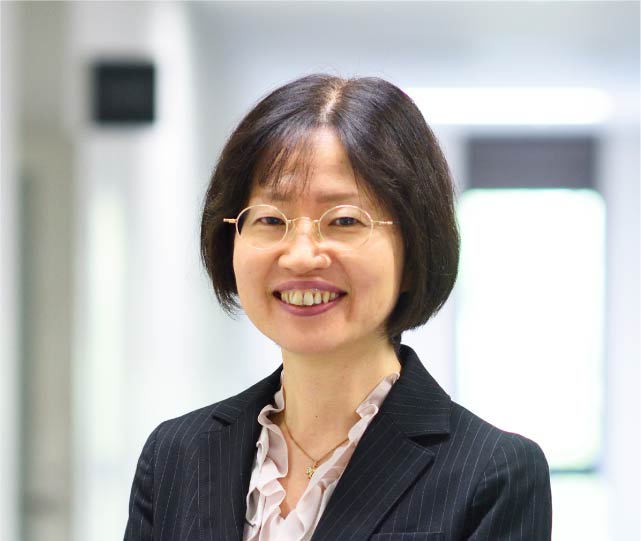
Fumie Tamai
British Culture and Literature
Research Topic
Nineteenth-Century British Culture and Literature
Self-Introduction
I have been studying various fields of studies. After graduating from Doshisha University, I earned my first MA in English at Doshisha, and M.ed in TESOL (Teaching English to a Speaker of Second Language) at Temple University. Then I studied at the University of Leeds and earned my second MA in Victorian Literature and Ph.D there. Although my present research interest centers on nineteenth-century British culture and literature, my courses cover a wide range of topics on cultural interaction and representation, which are vitally important issues to consider in the age of globalization.
Message to Students
To study a foreign language is not just to study grammar and vocabulary, but to lean a new value and acquire a new way of expressing yourself. I hope you will discover a new world and self in this faculty
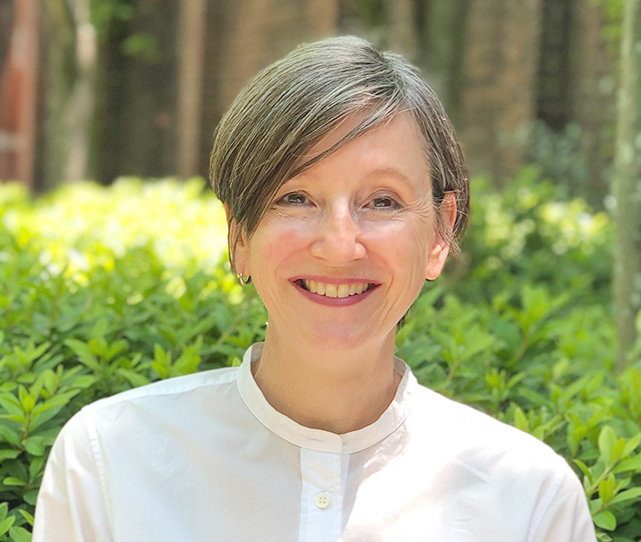
Regine DIETH
Japanese Studies, Gender
Research Topic
Japanese Studies, Gender
Self-Introduction
After finishing high school near the town of Ulm in southern Germany, I went to Berlin to study Japanology, Chinese Studies and Art History. I also spent one year at Kyoto University as an exchange student and fell in love with Kyoto’s culture and people. Before returning to Kyoto 20 years later– this time to Doshisha University - I worked for different German and Japanese organizations. Being involved in international activities and campaigns like World Expo, German Year in Japan, promotion of German companies and industry-academia collaboration, I was able to meet many internationally-minded people and broaden my intercultural understanding. My primary research interests are contemporary Japanese society and gender and diversity issues. For recreation, I like spending time in natural environments, especially hiking in the mountains and Onsen.
Message to Students
In your university courses, you learn a lot about the challenges of globalization, including environmental and social issues. It is important to study these topics theoretically, but I also would like you to realize that through your own behavior and actions you have the power to influence not only environmental, but political and social policy as well. I look forward to our classes and hope that also the study of the German language and culture can contribute to widening your perspectives.
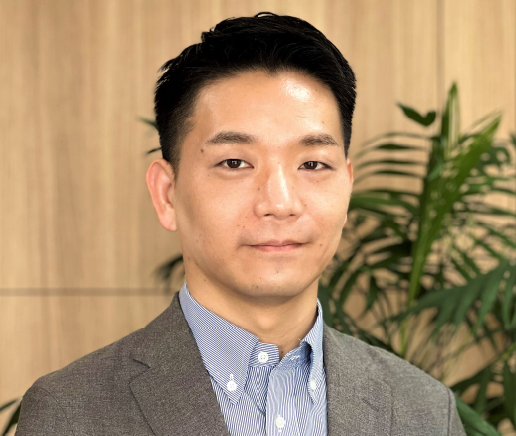
Marcelo FUKUSHIMA
International Economics, International Business
Research Topic
International Economics, International Business
Self-Introduction
My field of expertise is International Economics and International Business. My research has been mainly in international trade with focus on regional integration and international production networks. Phenomena such as the increase in international tourism and the globalization of human resources greatly influence how businesses work, so I hope I can further explore research from the perspectives of tourism business and cross-cultural communication.
I was born and raised in Brazil, a country rich in ethnic and cultural diversity, so since I was little, I have been interested in languages and world culture. I came to Japan in 1998 when I was 19 years old, so now, I have spent more time here than in my home country. However, every day, I still discover new things about Japan and its fascinating culture. In my free time, I like to watch movies and travel.
Message to Students
International business helps us make the world more fun and prosperous, but I believe one of the most attractive things about it is that it gives us the opportunity to interact with other countries’ peoples and cultures. If you wish to participate in global business and make a difference, you need to become a person with solid educational background, high cross-cultural communication skills, and proactiveness. I hope you will make full use of the time you spend here in GC to improve yourself.
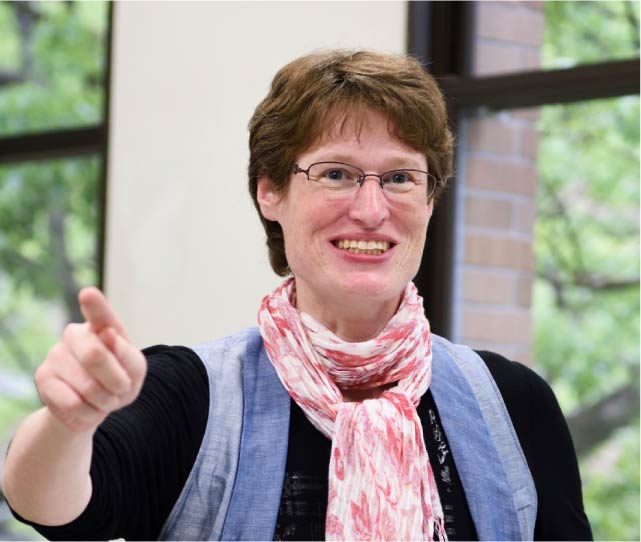
Bettina
GILDENHARD
Comparative Cultural Studies
Associate professor
Research Topic
Comparative Cultural Studies on Germany and Japan
Self-Introduction
I am from Germany, but I don’t drink beer. Neither do I have a driving license, nor do I know a lot about soccer. People who want to speak with me about beer, German cars or soccer are always very disappointed. I am sorry about that, but I would be very happy if I could contribute to making people interested in other aspects of German life and culture. During high school I started to learn Japanese in an elective class and since that time I have been fascinated by the Japanese language and Japan. I wrote my PhD thesis about Japanese literature, but now – inspired by my experience of living in Japan – I am carrying out comparative research on multicultural societies in Germany and Japan. The research on this theme has offered me a lot of new insights into both Japanese and German society.
Message to Students
German is very similar to English, but there are some interesting grammar items, like separable verbs, that are specific to German. I am sure that studying German will provide you with a lot of new discoveries and hope that you will enjoy studying foreign languages as much as I do. I am looking forward to discussing both Germany and Japan with you.
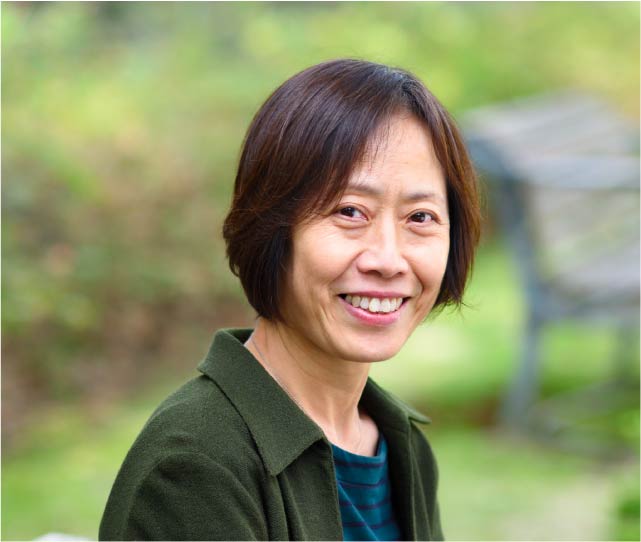
Yunhui Guo
Modern Chinese Linguistics
Research Topic
Modern Chinese Linguistics
Self-Introduction
Born and raised in Beijing, I had no idea about becoming a teacher, when I came to Japan for the first time. But here I am as a teacher in Japan. Sometimes I feel like this was somehow predestined. But in other times, I suspect this was because of my personality, which is clearly represented by my life motto: “When we get to the mountain, there’ll be a way through” (An attempt is sometimes easier than expected). I started living in Kyoto in 2006. It all started as a result of my following the path laid in front of me. Now I fit in this place pretty well.
Message to Students
Yesterday is history. Tomorrow is unknown. Today is the link between yesterday and tomorrow. Seize the day! Your life’s journey starts today!
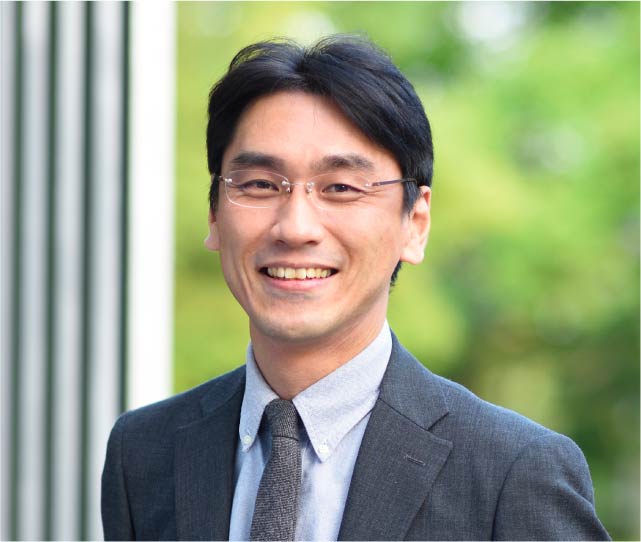
Yoichiro Hasebe
Cognitive Linguistics, Corpus Linguistics
Professor
Research Topic
Cognitive Linguistics, Corpus Linguistics
Self-Introduction
From morning until night, seven days a week, I’m thinking or engaging in something related to “language.” As a language teacher, I teach English; as a researcher, I study the structure of languages (such as English and Japanese) and create computer software (using programming “languages”); and when I get home, I am an enthusiastic observer of language development in my two young daughters. I look forward to sharing my passion for language with the students of the Faculty of Global Communications, Doshisha University, through various classes and activities.
Message to Students
The late Steve Jobs, the CEO of Apple, said in his 2005 Stanford commencement address, “you can't connect the dots looking forward; you can only connect them looking backwards.” I think this portrays an important point for students. The Faculty of Global Communications at Doshisha offers many opportunities for you to create those ‘dots’ within your education. Programs such as Threshold Seminar, Study Abroad, and Seminar Project all offer great opportunities through which to lay a solid academic foundation for your future. How will you connect the dots? —I cannot wait to see!
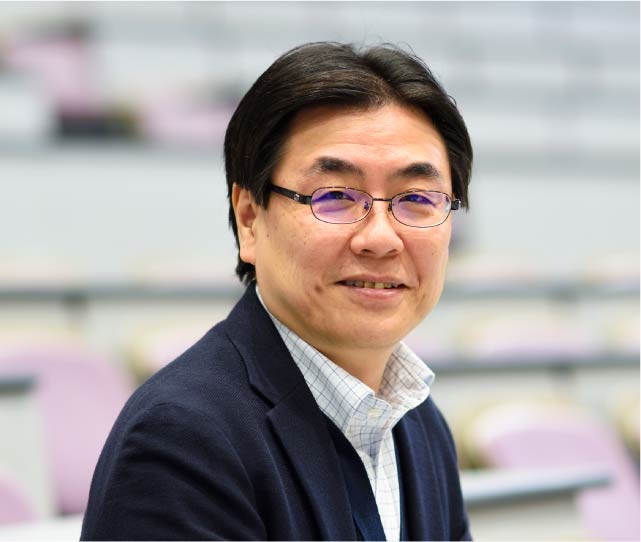
Akira Ise
20th Century French Literature
Research Topic
20th Century French Literature
Self-Introduction
Born and raised in Kyoto, Akira ISE smiles every time he looks at the billboard in the station that says: “We’re lucky to have Kyoto in Japan.” His students call him the “Sweet Spartan,” and he likes this nickname. He loves to eat, travel and watch the Takarazuka Revue. He is also passionate about Paris, where he studied for two years. Each year he goes back to Paris to feel the breath of the city by walking through familiar neighborhoods. As a specialist of twentieth century French literature, he is interested in cultural movements in the fields of art and literature, especially the “Esprit nouveau” of the French poet Guillaume Apollinaire, who played a very important role in the avant-garde movements of his time. As for the educational side, he is busy writing a set of French textbooks that will provide students with an effective and enjoyable way to learn French.
Message to Students
In order to establish communication with individuals from various cultural backgrounds who speak different languages, you must foster a high degree of competence in foreign languages. This will enable you to attain both cultural awareness and global knowledge, and allow you to express your thoughts to others. While studying different languages it is important for you to develop a broad range of perspectives and viewpoints and to cultivate a sensibility that allows you to sympathize with others.
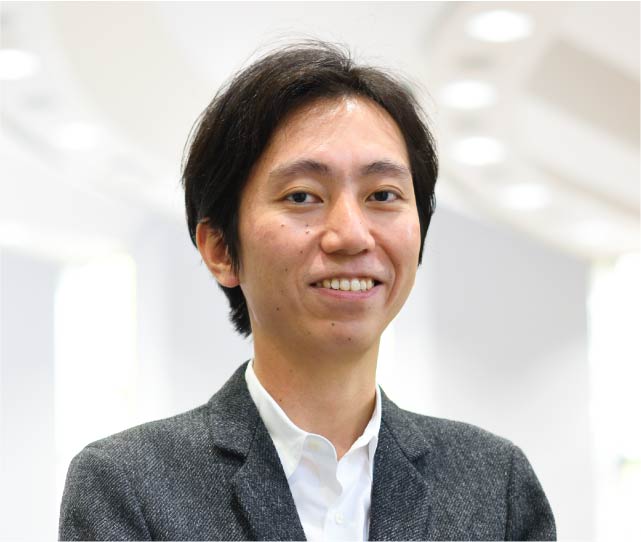
Daisuke Kawahara
Film Studies
Associate professor
Research Topic
Film Studies
Self-Introduction
Daisuke Kawahara has been an Assistant Professor at the Faculty of Global Communications since 2017. His research focuses on contemporary American cinema and culture; the American film industry since the 1980s; Hollywood cinema in the age of digitalization; and the political economy of New Hollywood. At GC, he teaches "British and American Culture and Society" and "Progress in Writing."
Message to Students
For those who are interested in the issues and questions arising from the study of cinema in the age of globalization, please feel free to contact me via email or to visit my office hours.
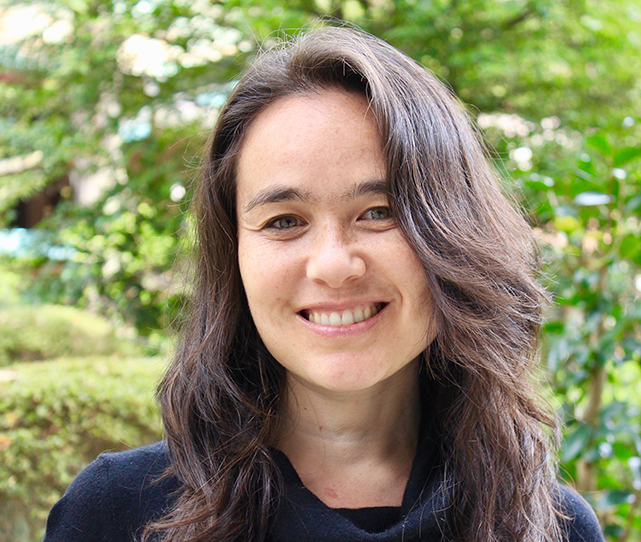
Crystal UCHINO
Cultural Studies, Social History, Politics, Ethnic Studies
Research associate
Research Topic
Cultural Studies, Social History, Politics, Ethnic Studies
Self-Introduction
I was born and raised on the Big Island of Hawai’i. Growing up off-grid, I spent my childhood exploring the rainforest, traversing lava cracks, and swimming almost daily. I have also lived in Flagstaff, Arizona--a place I credit for the most formative parts of my education, both in school and through my interactions with local community members, artists, and activists. It is there I learned to think about issues of race, gender, and social justice and became interested in how my life intersected with histories of colonialism, militarism, exploitation and other complex structures of oppression enacted on the lands I have called home and the communities I have inhabited. After graduating from university, I moved to Nagasaki with the intention to learn enough Japanese to be able to speak to my grandmother. A few years later I moved to Kyoto, where I completed graduate school and have been living since. My ‘zemi’ takes a cultural studies approach to think through structures of power in history and society. Along the way, we will address such themes as race, gender, sexuality, and class in connection with those of colonialism, globalization, migration, the environment, and social justice.
Message to Students
Being in university is a privilege that affords you time to explore new ideas. One of the most influential teachers I had in university, Joel Olson, often said, “education is uncomfortable. It makes you think about new things, challenge old beliefs, forces you to reevaluate the world, and makes you do work you ordinarily wouldn’t do.” I would like to add that despite, or perhaps because of that, it can be incredibly exciting, fun, rewarding, and transformative. My hope for you is that you will continue to refine your ability to think, write, read, and speak critically long after you leave the classroom.
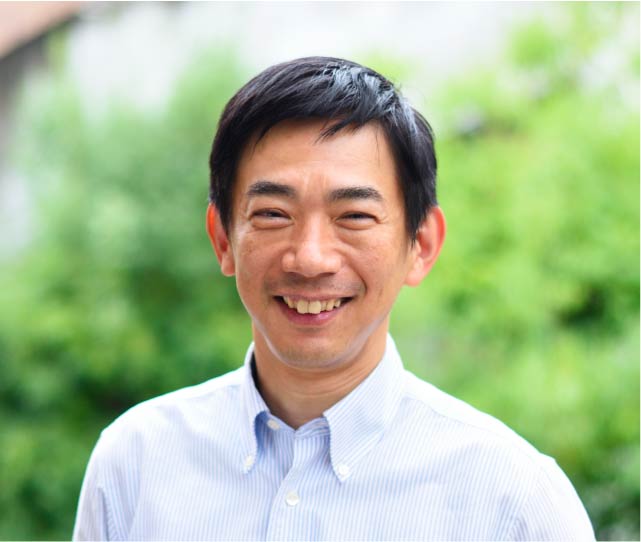
Mitsuo Kubota
Sociolinguistics
Research Topic
Sociolinguistics
Self-Introduction
I am originally from Kobe. In the past I thought of Kobe as being just a place where I was born and grew up. However, over time I have been progressively developing an attachment to the city. I was a violinist before I became a professor. I came to think that being a violinist was a part of my history that I had abandoned and forgotten. However, now I realize that being a musician is an important part of myself. Consequently, I started to perform again, little by little. Currently I am a sociolinguist and an educator for language. I see this as a part of my professional identity, yet I do not have a strong attachment to it. Nonetheless, I am sure I will come to realize that the day-to-day thinking about language, and the sharing of thoughts about it with students, will have a significant influence on my development.
Message to Students
Language acquisition is not a mere result of accumulation of knowledge about language such as vocabulary and grammar. You really have to develop an identity as a member of the community where the language is used in order to become a competent speaker. There are millions of ways to identify yourself as a member, and you need to constantly make decisions regarding how you position yourself in the community. Try to explore yourself in a different language through experience in GC and study abroad.
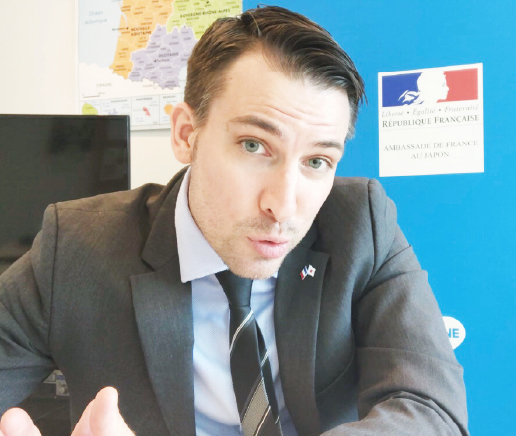
Ghislain MOUTON
Applied Linguistics, Acquisition of French
as a Second Language, Intercultural Communication
Research associate
Research Topic
Applied Linguistics, Acquisition of French as a Second Language, Intercultural Communication
Self-Introduction
I was born and raised in Lille, Northern France. I began practicing judo when I was 8 years old and since then, my sense of curiosity towards Japanese culture never stopped growing. I finally started to learn Japanese as a third language in High school, and time flies so fast that it’s already a “more than 20 years ago” story. For my master degree in France, I specialized in “Japanese literature” by studying the work of Endo Shusaku, but I have decided to switch fields for “Applied linguistics” after getting my master degree at The University of the Ryukyus. Since then, I have been doing some research about the correlations between ICT (smartphone applications, games, etc.) use and French as a second language learners motivation. My hobbies are editing videos, practicing judo and playing basket-ball.
Message to Students
In order to master properly a foreign language, it is said that you’ll need some motivation or opportunities. But, as the timing is different for everyone, I’d like to introduce you to as many ways of experiencing French as possible. Sometimes, we’ll read mangas or BD (Bandes dessinées), sometimes we’ll watch videos, sometimes we’ll write down messages in French on SNS, sometimes we’ll listen to French music, sometimes we’ll sing, and perhaps we’ll even study the basics of grammar or pronunciation together.
Anyway, I’m looking forward to “have fun seriously” with you while we’ll be studying French together.
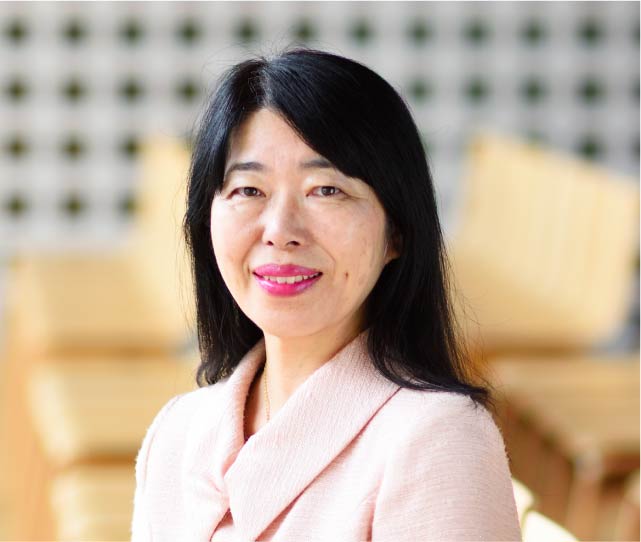
Tsuyako Nakamura
American Studies, Sociology
Professor
Research Topic
American Studies, Sociology (Women’s Labor Issues, Work/Life Balance)
Self-Introduction
My research is a comparative study on women’s career development and corporate family support in Japan and the United States. During my work days in the U.S., I realized the percentage of women management was higher than in Japan. I then started to examine this aspect, wondering where the difference comes from and what kind of factors lay in the background affecting there. When women work, family responsibilities including child care get in their career development, but if you wish to have a long-lasting career to achieve your self-actualization, whether you are a man or woman, your own values, along with corporate support and reactions, will be changed. I, thus, examine corporate support and career development through case studies, focusing on corporate daycare centers in the U.S. and Japan.
Message to Students
I graduate from the English course of Doshisha Women’s College of Liberal Arts. After graduating, I studied interpretation and translation at a graduate school in Monterey, California as a Rotary scholarship student. I then worked for a resort hotel in Hawaii, but craving to study more (?), I came back home to major in American studies (sociology, women’s labor issues) at the Ph.D. program of the Graduate School of American Studies. I am happy from the bottom of my heart that I can study, meeting you and sharing dreams on this beautiful Doshisha campus.
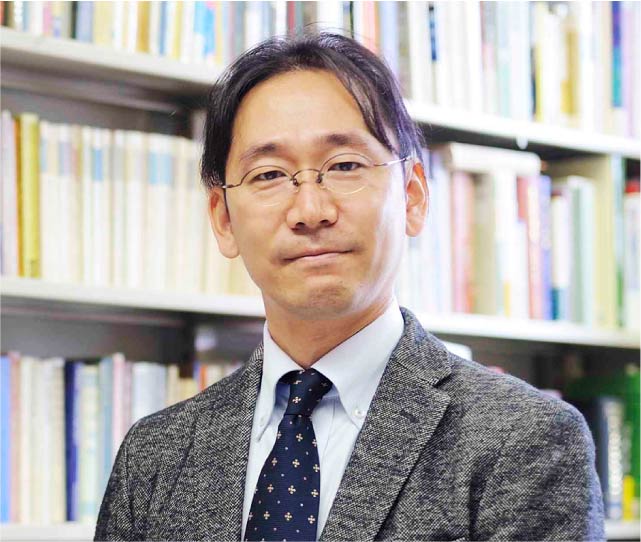
Hiroki Nakanishi
Field Linguistics and Historical Linguistics
Professor
Research Topic
Field Linguistics and Historical Linguistics
Self-Introduction
I was born in Tokyo. After graduating from university, I went to China to study and stayed for four years in Chengdu and Beijing. After coming back to Japan, I lived in Kyoto, Osaka, gradually moving westward to Kobe. Generally, these three cities are covered by the term of Kansai Area, but I was able to discover subtle differences in their dialects and customs and I think it is very interesting to find these local features in everyday life. My research theme is “description” and “change” of language. I investigate Chinese dialects and languages of ethnic minorities mainly in Southern China. Everywhere in greater China, delicious cuisine (and wine) can be enjoyed. It is just amazing!
Message to Students
Greater China mainly means the area from Eastern Asia to Southern East Asia. There are a lot of languages and cultures besides Chinese. Languages are really cultures themselves. They express the speaker’s world view. Therefore, to learn languages gives you a new way of recognizing the world. Let’s launch into the world by using Chinese language!
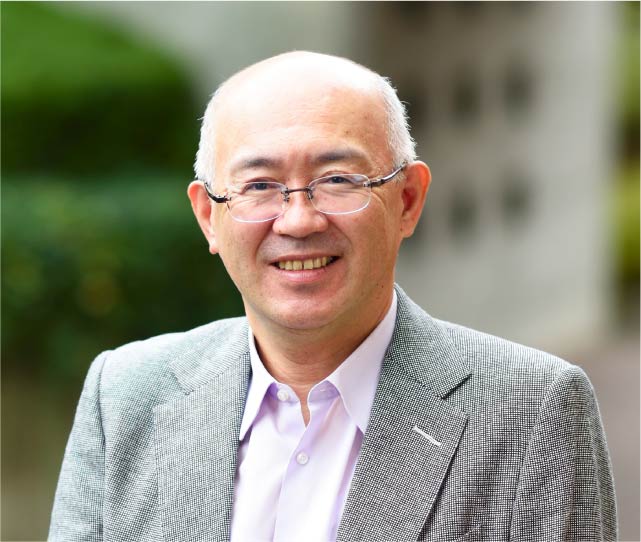
Yoshiyuki Nakata
Teaching English as a Foreign Language,etc…
Research Topic
Teaching English as a Foreign Language (TEFL), Applied Linguistics
Self-Introduction
My research interests include foreign language motivation, self-regulated learning, teacher-learner autonomy, and classroom English. All these are based on my past language learning experience as a learner. I am trying to explore the answers to the following questions: (1) why some learners give up their learning prematurely and are unsuccessful, while other learners actively engage in their learning and are motivated even in the face of potential failure; (2) what made motivated learners much more successful, including those who were previously unsuccessful; and (3) how to develop autonomous language learners. Though my journey is still halfway, I feel very fortunate to have such difficult but challenging goals. I am from Sanda-city, Hyogo. My hobbies are mountain climbing and skiing (i.e., mountains in the Japan Alps in summer and ski resorts in Shinshu in winter).
Message to Students
There are common characteristics among successful foreign language learners; (1) they can connect their ideal self and small steps to reach there; (2) they can find or create an appropriate environment for them to study a foreign language, can learn from mistakes, and revise their learning habit accordingly; (3) by doing so, they come to overvalue or undervalue themselves less, and come to consider their listeners and readers when using English. That is to say, they are lifelong learners who can continue through negative experiences, setbacks, and failures, and finally come to enjoy language learning.
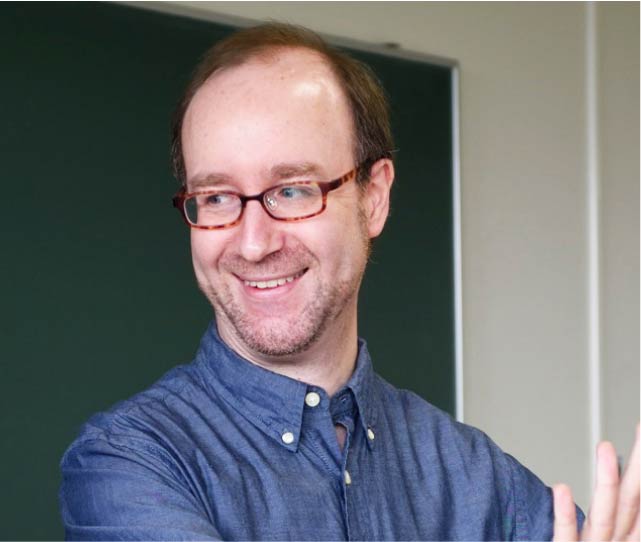
Peter NEFF
TESOL/Applied Linguistics,etc...
Research Topic
TESOL/Applied Linguistics, Second Language Composition, Project/Task-based Learning, Language Testing, Business English
Self-Introduction
After a relatively typical upbringing in Ohio in the U.S., my life became much more exciting when I decided to move to Japan after receiving my undergraduate degree in English literature. During the next several years I made many friends here and had my first professional experience teaching English, which then inspired me to return to the U.S. to study for my Masters degree in TESOL/Applied Linguistics. Since coming back to Japan more than 10 years ago, I have gone on to complete a doctorate in education and have lived and worked in Chiba, Tokyo, Okayama, and now Kyoto. When I am not teaching or doing research you can often find me hiking, watching great films, reading about art history, and travelling to interesting spots around the globe.
Message to Students
English today is truly a “global language,” spoken more by people living outside of native English-speaking countries than within them. It is also a remarkably flexible language, constantly incorporating new words and phrases from various cultures. For these reasons, there is no need to feel too much pressure or anxiety when communicating in English. Native and non-native speakers alike will often be very patient and accepting when it comes to others’ language communication, and showing your good intentions with a positive spirit can be far more meaningful than speaking in perfect English.
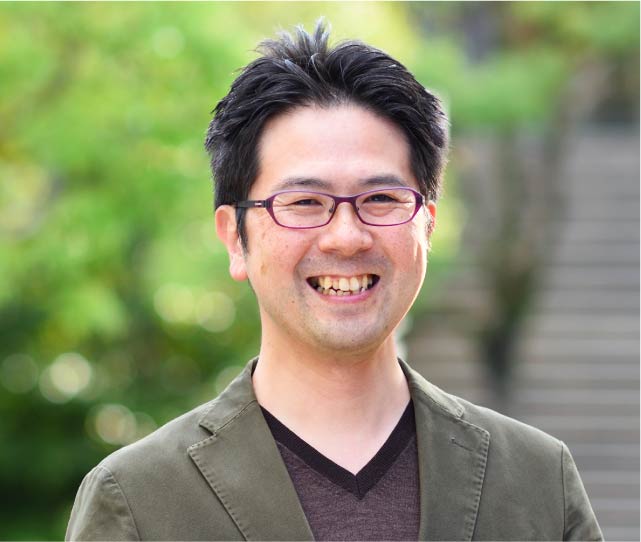
Jun Sudo
Phonetics; Conversation Analysis,etc…
Research Topic
Phonetics; Conversation Analysis; Japanese as a Foreign Language.
Self-Introduction
I was born in the city of Hakodate, Hokkaido, from where the founder of Doshisha University, Joseph Hardy Neesima, embarked upon his adventure to America. I have been engaged in teaching Japanese as a foreign language (JFL) for more than 15 years, and I spent a few years living and teaching JFL in Russia because I studied Russian during my college days. These days, unfortunately, I rarely have an opportunity to use Russian though. My research interests include Japanese phonetics, in particular, the prosodic features (i.e. accent, intonation, etc.) of interjections, such as: /hai/, /un/, and /aa/. I also teach JFL pronunciation.
Message to Students
I think that people who reach their goals or become very successful have always made mistakes along the way. The important thing is that they learn from their mistakes and think about ways to improve rather than focusing on avoiding mistakes. I hope that you will learn many positive things from your mistakes and be able to achieve any goal you set for yourself in Japan.
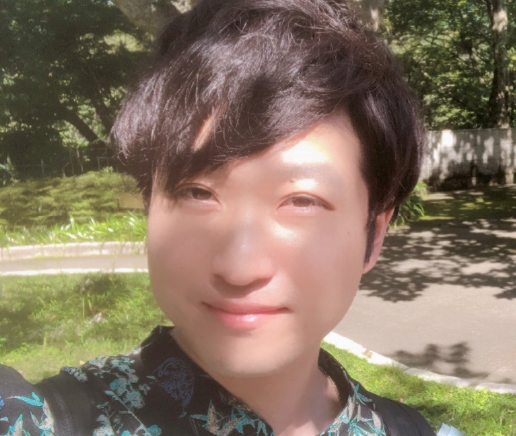
Akira Suwa
Nineteenth-Century and
Contemporary British Literature
Research Topic
Nineteenth-Century and Contemporary British Literature
Self-Introduction
My research interests are centred on neo-Victorianism, which refers to a cultural movement in a variety of genres such as literature, film, and fashion where societal norms and culture in the Victorian period are re-imagined, reinterpreted, and critiqued. In particular, I have been researching the way gender and (queer) sexuality are portrayed in neo-Victorian novels. I like watching films and dramas (which is also part of my research).
I was born and raised in Hakodate, Hokkaido. After graduating from Sophia University, I moved on to study film and literature at the University of York (MA) and English literature at Cardiff University (PhD). I am slowly getting used to living in Osaka (or so I think).
Message to Students
It is paramount to have the courage to take action. Pursuing your interests – whatever they might be (such as reading novels, watching films, going to theatres and museums) – will give you a lot of different perspectives. I hope you find something about which you can be passionate during your time at Doshisha.
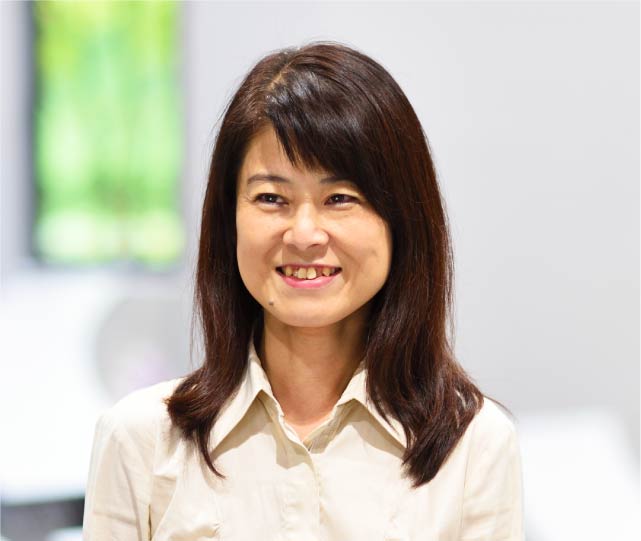
Mikiko Suzuki
Second Language Acquisition, TESOL
Research associate
Research Topic
Second Language Acquisition, TESOL
Self-Introduction
Born and raised in Nagoya and studied at colleges in Osaka and Washington State, I went on to a ten years’ long journey of pursuing my study in California, Georgia, and New York. Now I am proud and happy to be in Kyoto to share my experience of study abroad and try out what I found in my research. My research interests are in the field of second language acquisition and TESOL, and my current focus is the relationship between learner errors and second language learning. I would like to be of help to those trying to improve their English skills and those who would like to know how people learn other languages than their mother tongues.
Message to Students
It is known that, when language learners make errors, they can improve their language performance if the errors are corrected by others. Furthermore, research shows that the learners can make additional improvement if they respond to the error correction, rather than just receiving the correction and not responding to it. I would like to suggest to students to proudly make errors, be corrected and respond to the correction, so there is a big chance of be better users of English.
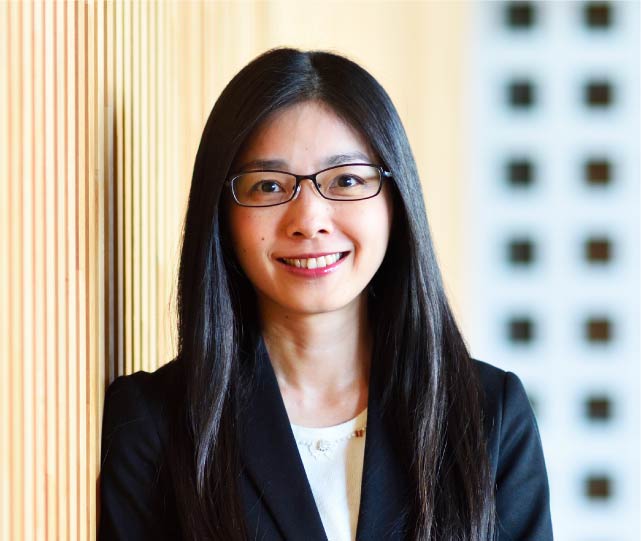
Hau-yun Tang
Taiwanese Literature
Research associate
Research Topic
Taiwanese Literature
Self-Introduction
I am originally from Taiwan, and after I graduated from The National Taiwan University I received a scholarship from the Interchange Association in Japan to come and study in this country. After receiving my M.A. and Ph.D. from Kobe University, I returned to Taiwan to work in the Academia Sinica as a postdoctoral fellow for two years. In 2011, I came back to Japan to teach Chinese, first in Kwansei Gakuin University, and now, from the spring of 2015, in Doshisha University. I study in Taiwanese literature written under Japanese rule, and am especially interested in the issue of language.
Message to Students
It is really a wonderful thing that students in the Faculty of Global Communications can study abroad for one year. To study abroad means diving into an unknown world. Just meet a lot of people, observe, and comprehend a different culture with an open mind. I believe it will become a valuable experience in your life.
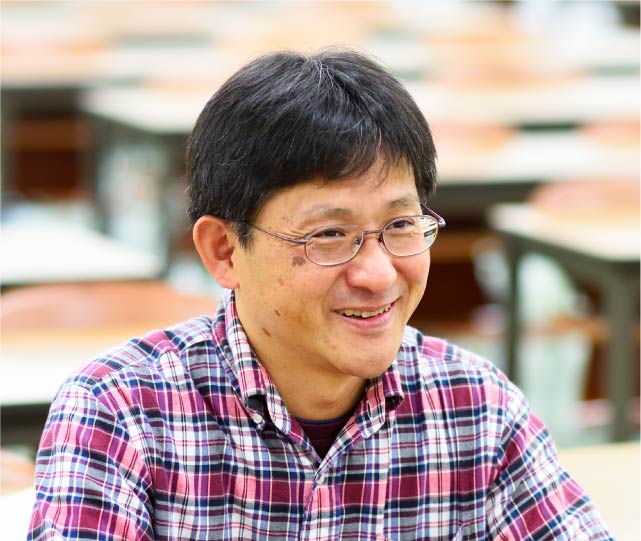
Naotaka Uchida
Politics and Diplomacy of Modern China,etc…
Research Topic
Politics and Diplomacy of Modern China, Chinese Modern and Contemporary History
Self-Introduction
My field of study is the politics and diplomacy of modern China, specifically focusing on China-Japan relations during the first half of the 20th century. I am interested in understanding why both Japan and China rushed into wars during this time. As an undergraduate student I studied modern and contemporary Chinese history. At the same time I began studying the Chinese language. Before I began teaching Chinese at the university level I worked for the Consulate General of Japan in Shanghai. My responsibility was to analyze China's political and economic problems. My personal interests include listening to music, watching movies and traveling.
Message to Students
I hope you will study Chinese hard every day and endeavor to reach the level of a native speaker. I am sure that it will be a wonderful experience for you to study abroad for one year during your four-years at Doshisha. I am looking forward to meeting you and to talking about the future of China-Japan relations with you.
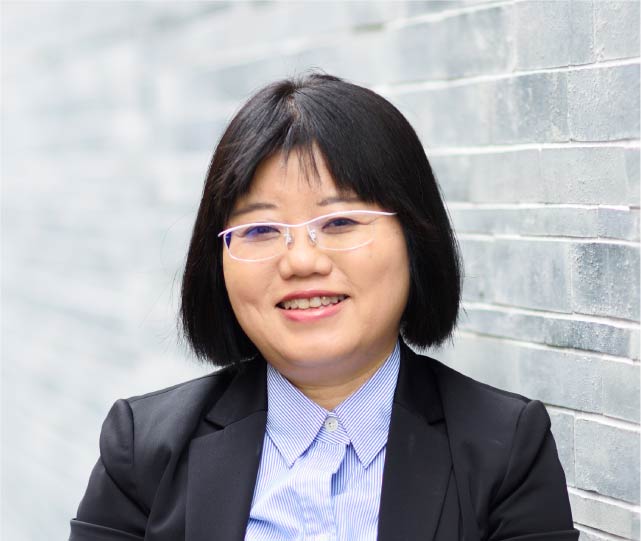
Riko Wakita
Japanese Language Teaching,etc…
Professor
Research Topic
Japanese Language Teaching, Academic Writing Education, Intercultural Communication
Self-Introduction
Fukuoka-born, I have taught overseas students Japanese language at universities for more than 20 years. Recently, my research interests are in logical thinking and academic writing education. I thoroughly enjoy Kyoto’s annual festivities as well as its seasonal natural beauty. In particular, I recommend the Setsu-bun (the close of winter) festival at Mibu temple on Feb. 3rd, the Gion festival Yama-hoko Junkou on July 17th and 24th, and the colorful autumn leaves of Eikan-do temple. I sometimes sing hymns as a member of the faculty chorus group at the Imadegawa Chapel hour.
Message to Students
Please join us if you want to deeply understand the Japanese language and have an interest in Japanese culture. Because our aim is to prepare students to play an active part in our global world, it is important to study not only the Japanese language but also Japanese society and Japanese culture. As you will be studying in small-sized classes, there will be many opportunities to communicate during class. Furthermore, you will be able to study with Japanese students during some lectures. I am looking forward to meeting you at Kyotanabe campus.
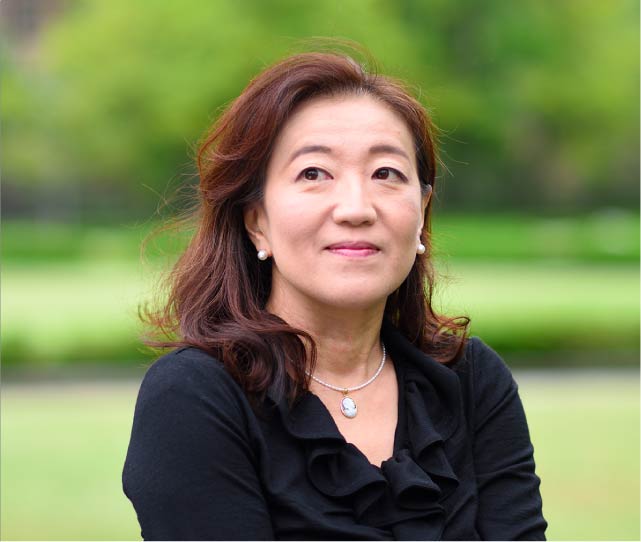
Yuko Yoshida
Theoretical Linguistics,etc…
Research Topic
Theoretical Linguistics (Phonetics, Phonology, Morpho-Phonological Interface, Syntax-Phonology Interface), Language Varieties (Kansai and Ryukyuan dialects of Japanese and Regional Varieties of English), Sociolinguistics
Self-Introduction
Since I obtained my doctorate in General Linguistics, on the pitch accent system of Japanese (University of London), I have been conducting research into theoretical analysis of various phonological phenomena in Japanese and English, the morpho-phonological interface and phonetics-phonology interface. My research interests include varieties of Japanese, especially Kansai varieties and Ryukyuan, as well as regional varieties of English. I am teaching the following linguistics courses at GC: Introduction to English Speaking Cultures, Knowledge of English, and History of English and World Englishes, as well as conducting Intermediate and Advanced Seminars. In my spare time I like listening to music of various kinds, trying recipes of the world, and gardening.
Message to Students
Linguistics is the scientific study of language questioning how languages work, pursuing the features common to all human languages. Our main goal is to increase our understanding of language use, a distinctively human activity, ultimately contributing to our knowledge of the world.
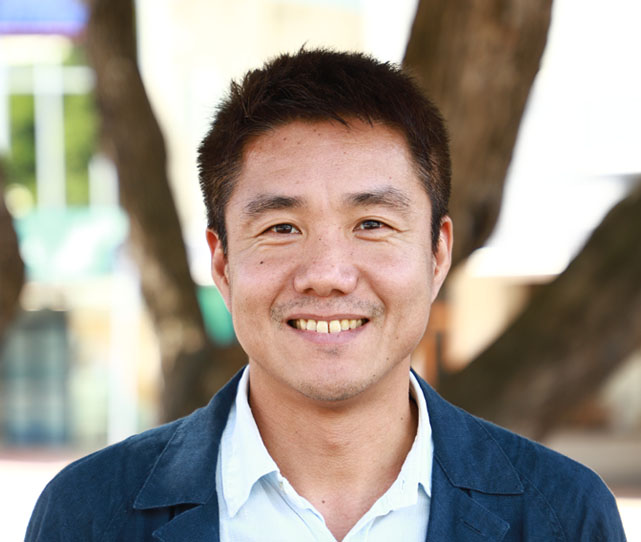
OKAZAKI Takayuki
Intercultural Communication, Sociolinguistics, Alternative Education
Associate professor
Research Topic
Intercultural Communication, Sociolinguistics, Alternative Education
Self-Introduction
I was born in Yamatokoriyama, Nara. Most of my ancestors are from Minami-Yamashiro area, including Hosono and Kyotanabe. I feel I have returned to my ancestral roots. In my second year of university, I went abroad for the first time to visit Seattle. The joy of making friends overseas and the frustration of not being able to communicate in English led me to study abroad in Leeds and Hawaiʻi, and after working for an NGO for international exchange, I became a university educator. My travels and work took me to over 50 countries, but I was most influenced by my encounters with Japan’s Ainu people. Since then, I have had opportunities to assist in exchanges between Japan’s indigenous peoples and New Zealand’s Māori. My research interest include Pākehā identities (New Zealanders of European descent, the majority group) involved with Māori, while considering my own identity as a person in the majority in Japan. I am also interested in alternative education, such as Kura Kaupapa Māori, where all subjects are taught exclusively in the Māori language, in New Zealand, and Steiner/Waldorf schools in Japan.
Message to Students
English is just one of many languages in the world, but learning this language can be very meaningful. As a tool for inter-cultural communication, it serves as a portal to unlock a wealth of insights into diverse cultural backgrounds. One of the privileges of being a university student is having time on your hands. Despite concerns you may have, take a bold step forward to what you really want to do.
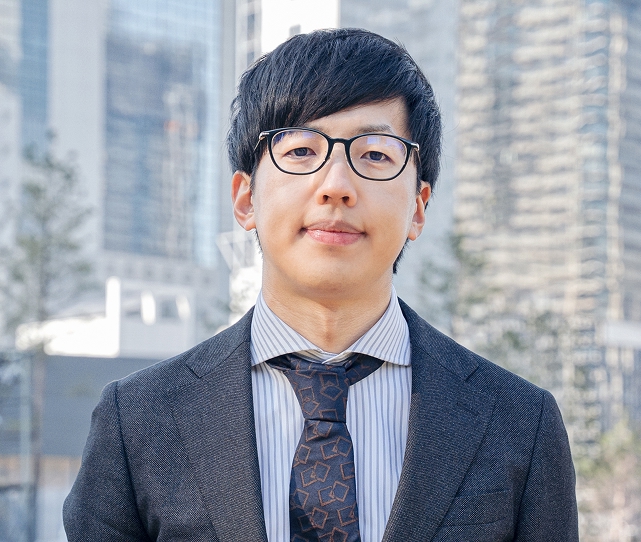
Sakaba Hiromichi
Semantics, Relationship between Language and Culture
Research associate
Research Topic
Semantics, Relationship between Language and Culture
Self-Introduction
My field of expertise is linguistics, and I have a broad interest in languages. I am particularly fascinated by the meanings of words and how speakers of different languages dissect nature. For example, two different animals, such as a mouse and a rat, might be classified as “two different kinds of animals” in English (e.g. mouse and rat), but as “the same kind of animal” in Japanese (e.g. nezumi). This illustrates how languages can dissect nature differently. Exploring these linguistic worldviews is the driving force behind my research.
I was born and raised in Mito City, Ibaraki Prefecture, and moved to the Kansai region for university. During my undergraduate and postgraduate studies, I studied abroad at the Australian National University. The knowledge and experience I gained while studying abroad inspired me to pursue a career in research.
Message to Students
Learning a language is closely linked to understanding the world as perceived by its speakers. By studying the linguistic worldview of a language other than your own, you can gain valuable insights into the diversity of perspectives on the world. This process also helps you realize that the worldview provided by your native language is not the only way to conceptualize the world, but just one of many.
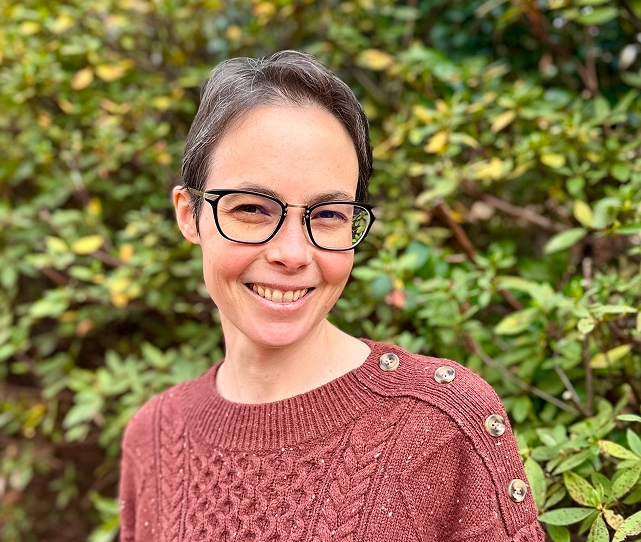
Jennifer Rose Smith
TESOL, Group Dynamics, Gender
Research associate
Research Topic
TESOL, Group Dynamics, Gender
Self-Introduction
My interest in the way that language interacts with identity and power led me to study English language education and eventually get a M.A. in TESOL from Hawaii Pacific University. I have been teaching English in Japan at universities for over ten years, and I enjoy the fact that there is always something new to learn. Recently, I completed a gender studies program from the University of Massachusetts Dartmouth and hope to apply that knowledge to improving gender equality and awareness in language studies. My research interests also include how group dynamics impact language learning. My hometown of Seattle is much cooler in the summer than Kyoto, but I love living here. In my free time, I enjoy hiking, weaving, and visiting museums.
Message to Students
I truly think that language is a type of power. When we learn another language, we learn a different way of looking at and interacting with the world and ourselves. It is my hope that during your time at university, you learn to think critically about your own interactions with your current communities and the communities you wish to join in the future. The process of learning another language can give you another skill for this task. I look forward to working with you on this path.
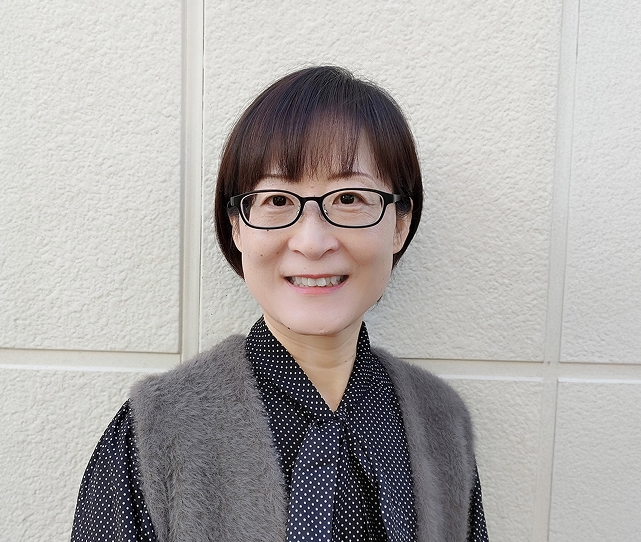
Xiao Haina
Chinese Linguistics, Chinese Language Education, Japanese-Chinese Contrastive Linguistics
Research Topic
Chinese Linguistics, Chinese Language Education, Japanese-Chinese Contrastive Linguistics
Self-Introduction
Since I was little, I've always been the type to zone out, and I spent over twenty years without ever finding my dream. However, after graduating from university, encountering the Japanese language changed my life. I was amazed by a Japanese teacher who taught grammar through songs. Later, when a Japanese neighbor asked me about Chinese and I couldn't answer, I felt disappointed in myself. These experiences inspired me to pursue language research and foreign language education as my dream, leading me to enter graduate school. Until now, I have focused on topics such as contrastive studies of noun phrases in Japanese and Chinese, and the development of Chinese grammar teaching methods for Japanese learners. Moving forward, I hope to continue exploring how knowledge gained from Chinese linguistics can be applied to language education for Japanese learners.
Message to Students
While you're still in your twenties, I hope you'll take the chance to step outside of Japan and experience the wider world. Connect with people who have diverse values, and use those experiences to rediscover yourself and your own country. Don't be afraid of failure—through various experiences, find what you truly love. In your thirties, devote yourself to what you love and strive to become a master in that field. Commit to refining yourself with that goal in mind. When you feel lost or tired, it's okay to take a break—just keep moving forward at your own pace. As Confucius said in the Analects of Confucius, 'At thirty, I stood firm; at forty, I had no doubts.' When you reach your forties, you'll surely be grateful for the efforts you made in your thirties. Let’s do what we love and walk the path we enjoy—together.



